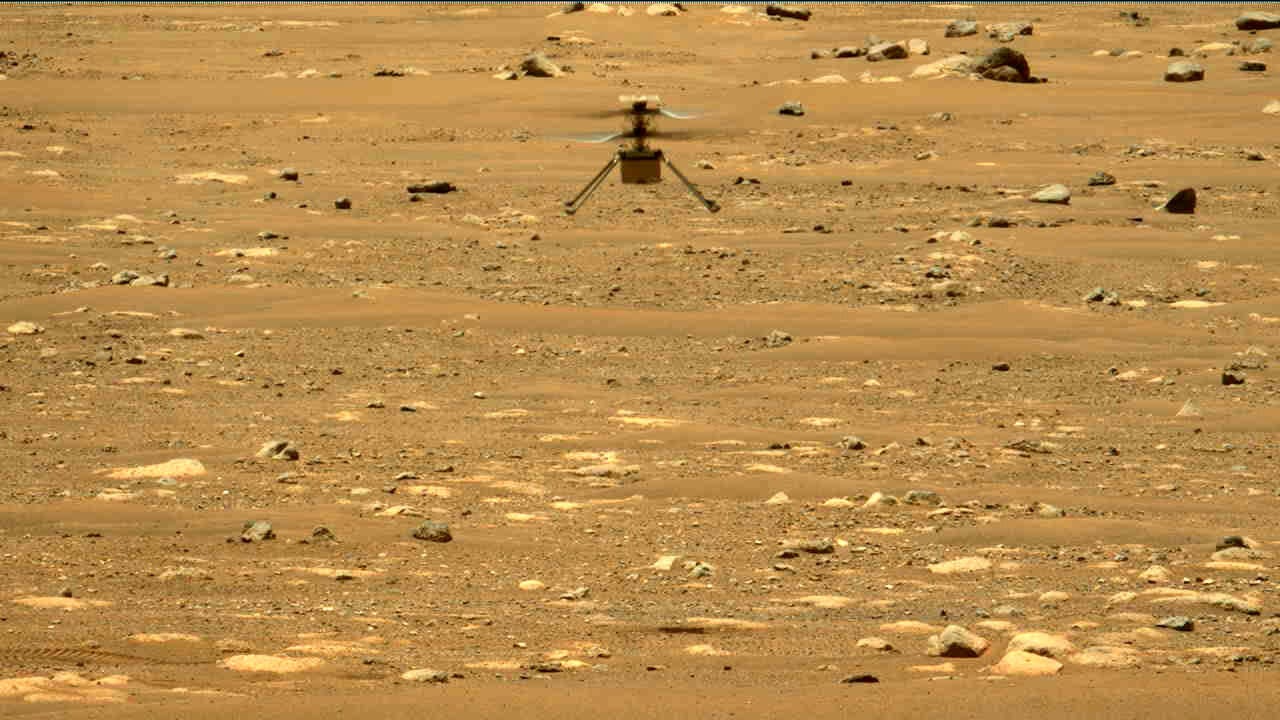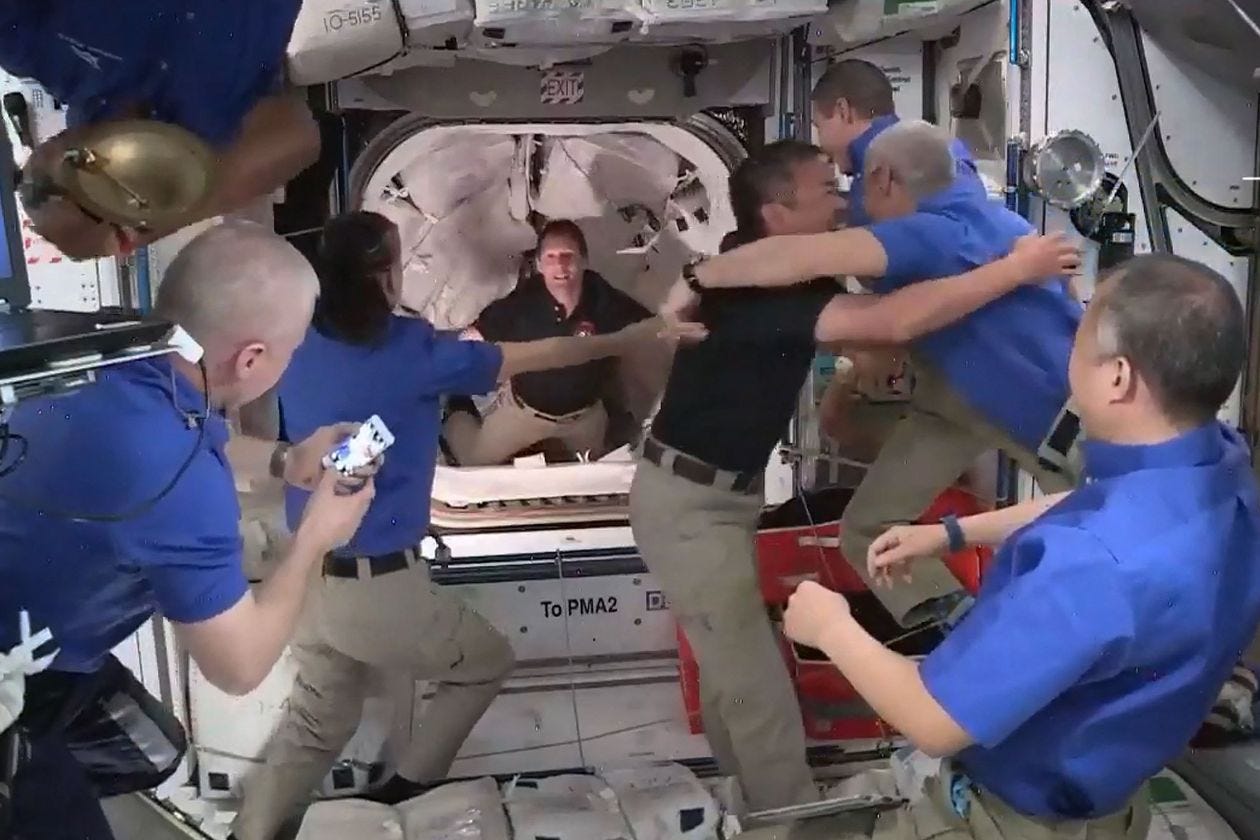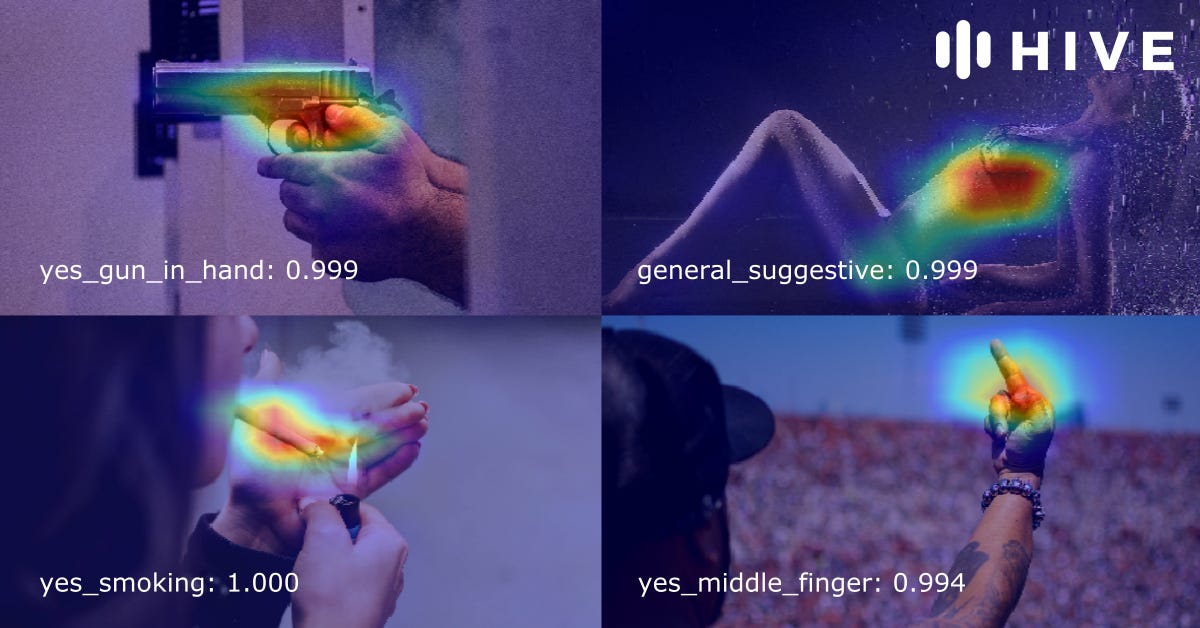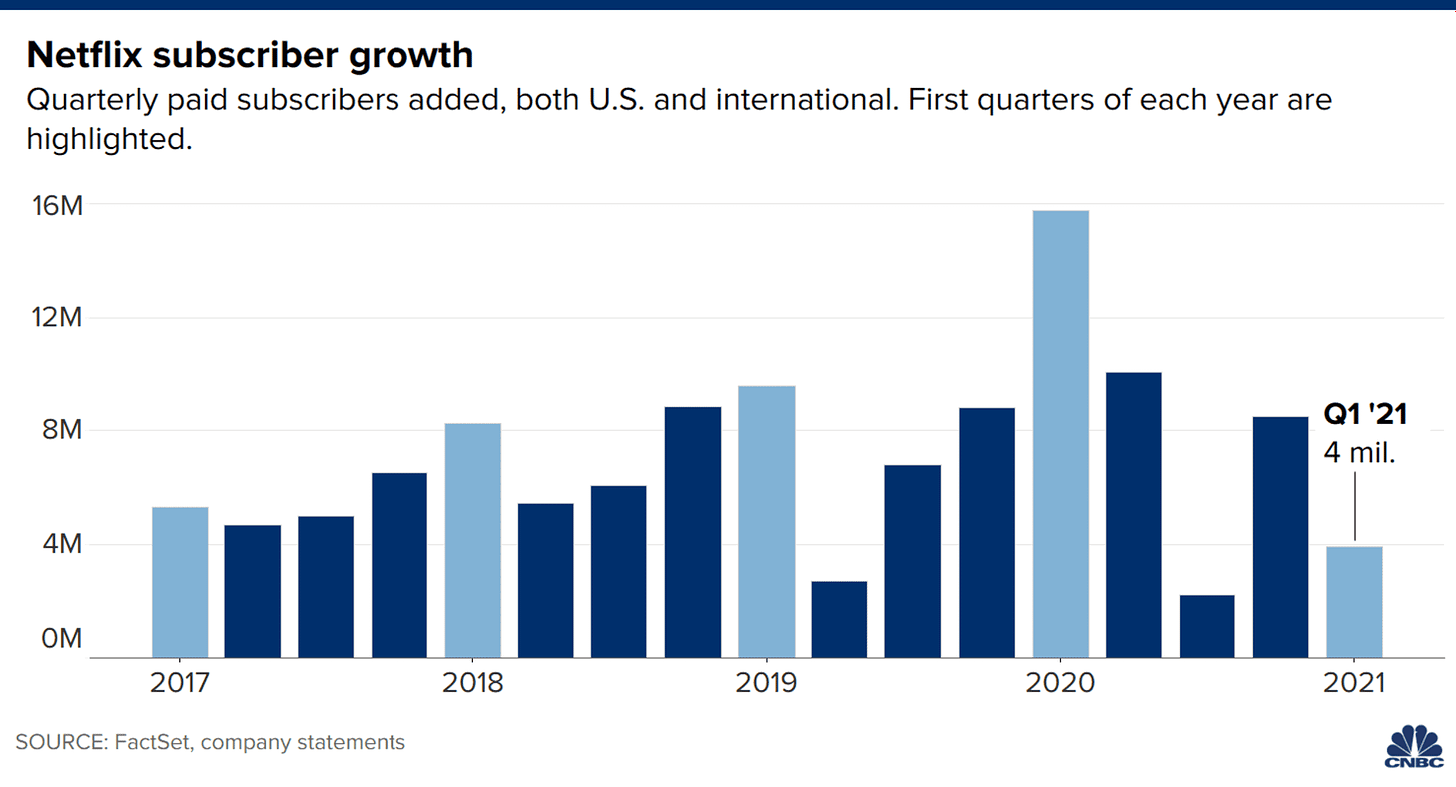Greetings!
Here’s your weekly wrap of the latest technology, innovation, and finance news.
?️ Space
NASA’s Mars helicopter successfully flew on the red planet in the past week, not once, not twice, but three times.
“Third flight in the history books.” officials at NASA’s Jet Propulsion Laboratory in Southern California wrote on Twitter. “Our #MarsHelicopter continues to set records, flying faster and farther. The space chopper is demonstrating critical capabilities that could enable the addition of an aerial dimension to future missions to Mars & beyond.”

In its first activation, the toaster-sized instrument dubbed MOXIE, short for Mars Oxygen In-Situ Resource Utilization Experiment, produced about 5 grams of oxygen, equivalent to roughly 10 minutes’ worth of breathing for an astronaut, NASA said.
HELIOS, an Israeli startup, has developed a method for producing oxygen from the Moon’s surface.
“The technology we’ve developed is part of a value chain that will allow permanent bases to be established outside the limits of planet earth,” CEO and co-founder of HELIOS, Jonathan Geifman said, stressing the importance of focusing on basic infrastructure and the ability to produce raw materials from natural resources “in order to avoid having to endlessly transport equipment.”
SpaceX completed its third trip successfully delivering astronauts to the International Space Station. This is the first time they’ve done it with both a pre-used capsule and a pre-used rocket.

After the core module reaches space, China plans at least 10 more launches of other major modules, as well as crewed and cargo missions, to complete the station’s assembly by the end of 2022. At that time the CSS will join the International Space Station (ISS) as the only fully operational space stations in orbit.
Russia plans to stop using the International Space Station in 2025.
Russia’s space agency Roscosmos said it plans to form its own orbiting outpost after international agreements on the use of ISS expire in 2024, according to Interfax.
According to Elon Musk, SpaceX’s Starlink satellite constellation should be big enough to provide fully mobile internet access by the end of 2021.
? Cybersecurity
A hacker group called REvil stole Apple product plans from Taiwanese supplier Quanta Computer. They asked Apple for a $50 million ransom; WIRED called it the future of ransomware.
The $50 million demand may seem extraordinary, but it also fits in with the recent ransomware trend of “big game” hunting. REvil reportedly put the same sum to Acer in March, and the average ransomware demand reportedly doubled between 2019 and 2020. Large companies have become a more popular target specifically, because they can potentially afford big payouts; it’s a more efficient racket for a criminal group than cobbling smaller payments together from more victims.
The founder of Thodex, a Turkish cryptocurrency exchange, has gone missing and reportedly taken $2 billion of investors’ funds with him.
? Artificial Intelligence
Hive, a startup that hosts machine learning models in the cloud that enterprises can access via an API, has raised $85 million at a $2 billion valuation.
 Google launched AI-powered document processing services in general availability.
Google launched AI-powered document processing services in general availability.
?️ Ecommerce & Commerce
Amazon had a busy week — they’re adding their “Just Walk Out” cashierless checkout technology to new supermarkets, introducing their palm-scanning payment system to a Whole Foods store in Seattle, and they’re even opening a hair salon!
Amazon will use the salon as a place to try out new ideas. Visitors will be able to see themselves with different virtual hair colors, courtesy of augmented reality. They’ll also be able to browse shelves of products enabled with “point-and-learn technology,” which allows them to simply point at a product on a shelf to activate a display screen with product information and videos.
Kroger, the largest US supermarket operator, is investing in large robotic fulfilment centres to battle Amazon and Walmart, but its approach has its doubters.
There are also cheaper ways to automate picking groceries, like what Walmart and others are doing with smaller robot-run facilities attached to existing locations.
“This is a pretty big gamble in untested waters,” said Robert Moskow, an analyst at Credit Suisse. “I would have chosen a more flexible, less capital-intensive approach. There’s a lot of unknowns out there.”
? Batteries and EVs
Arrival, an EV startup backed by UPS, wants to replace the traditional assembly line in manufacturing.
The company, Arrival, is creating highly automated “microfactories” where its delivery vans and buses will be assembled by multitasking robots, breaking from the approach pioneered by Henry Ford and used by most of the world’s automakers. The plants would produce tens of thousands of vehicles a year. That’s far fewer than traditional auto plants, which require 2,000 or more workers and typically produce hundreds of thousands of vehicles a year.
? Advanced Materials
Scientists have discovered bacteria that can convert toxic copper ions into a more useful form of pure copper (see the paper).
Researchers will still have to figure out how to use the microbes to mass produce single-atom copper. Nonetheless, Rodrigues and her colleagues wrote, “This study opens a new field of research of environmental micro-organisms that potentially are able to synthesize other monoatomic metals for applications in science, technology, engineering and medicine.”
? Health
A new tool can help design DNA-based robots in minutes rather than days (see the paper).
The software helps researchers design ways to take tiny strands of DNA and combine them into complex structures with parts like rotors and hinges that can move and complete a variety of tasks, including drug delivery.
? Mouse Health
An experimental drug has reversed key symptoms of Alzheimer’s disease in mice (see the paper).
A new study shows that after a mouse has had a heart attack, blocking key enzymes can promote muscle regeneration (see the paper).
▶️ Streaming
Netflix reported a dramatic slowdown in subscribers, adding four million new subscribers vs the six million it had forecast. The stock declined 7.5% over the week.
“We don’t believe competitive intensity materially changed in the quarter or was a material factor in the variance as the over-forecast was across all of our regions,” according to the repor
 HBO and HBO Max added 2.7 million US subscribers in the first quarter.
HBO and HBO Max added 2.7 million US subscribers in the first quarter.
? Virtual and Augmented Reality
The New York Times wrote about virtual reality showing great promise for physical and occupational therapy.
While research specifically on V.R. use in physical and occupational therapy is in the early stages, an analysis of 27 studies, conducted by Matt C. Howard, an assistant professor of marketing and quantitative methods at the University of South Alabama, found that V.R. therapy is, in general, more effective than traditional programs.
Oculus showed off 12 VR games at their gaming showcase.
? Renewables & Climate Change
The US will aim to cut carbon emissions by as much as 52% by 2030.
A UN report stated that cutting the release of methane is critical for the climate.
It also says that — unless there is significant deployment of unproven technologies capable of pulling greenhouse gases out of the air — expanding the use of natural gas is incompatible with keeping global warming to 1.5 degrees Celsius, a goal of the international Paris Agreement.
A new report on the economics of climate change by insurance giant Swiss Re warns that climate change could cut global economic output by 11-14% by 2050.
If that happens, the economy of the United States would be as much as 7 percent smaller than in a world without climate change, the report estimated. Other wealthy Western nations, including Canada, Britain and France, could lose between 6 percent and 10 percent of their potential economic output.
The New York Times published this climate change primer: The Science of Climate Change Explained: Facts, Evidence and Proof.
The Guardian wrote a piece on how solar power continues to shock the worldfeaturing University of NSW professor Martin Green.
“We think a 40% module, rather than the 22% you can do nowadays with PERC, is what the industry will be doing once we perfect this stacking approach,” Green says. “We’re just trying to find a new cell that will have all the qualities of silicon that we can stack on top of silicon.
“The International Energy Agency now says solar is providing the cheapest energy the world has ever seen. But we’re headed towards a future of insanely cheap energy.
? Finance
According to a new study by the Sustainable Finance Programme at Oxford University, it’s never been this expensive to finance a new coal power plant.
High-carbon businesses are borrowing money at much higher rates in 2020 compared to 2010. Over that decade, the loan spread for coal mines and coal-fired power plants rose 38% and 54%, respectively.
A Peter Thiel-backed psychedelics startup, ATAI Life Sciences, plans to raise $100m in an IPO (see the S-1).
M&A has soared in the games industry this year, with 280 deals worth $39 billionannounced in the 1st quarter of 2021, higher than the $33 billion worth of deals announced last year.
CNBC looked at the recent rise and role of meme stocks in the market.
⚡ Other Snippets
Spotify, Match, and Tile appeared at a Senate hearing to talk about anticompetitive practices from Apple and Google regarding their app stores.
Both Democratic and Republican senators were skeptical of those explanations. “Google and Apple are here to defend the patently indefensible,” said Senator Richard Blumenthal, a Democrat from Connecticut. “If you presented this fact pattern in a law school antitrust exam, the students would laugh the professor out of the classroom, because it is such an obvious violation of our antitrust laws.”
Scientific American discusses how 3D scanning is reinventing paleoanthropology.
Excavating a fossil is a little bit like unwrapping a present: you’re never entirely sure of what you’ll get. In the case of the DNH 155 cranium, the “wrapping” was two-million-year-old cave sediments and the “unwrapping” a painstaking and precarious process that took weeks.
Carbon Robotics is a Seattle-based robotics startup that autonomously zaps weeds with lasers. Their robot is sold out for 2021.
Have a great week,
Thomas




